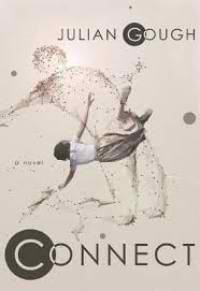Dark Water by Robert Bryndza
 Saturday, May 30, 2020 at 11:43PM
Saturday, May 30, 2020 at 11:43PM 
First published in Great Britain in 2016; published by Grand Central Publishing on October 1, 2019
Dark Water is the third novel in the Erika Foster series that began with The Girl in the Ice. DCI Erika Foster is now assigned to a unit that handles drug cases and other big investigations. As she leads a team that pulls a chest of heroin from the bottom of a flooded quarry, the divers also find the skeletal remains of a 7-year-old girl who went missing in 1990, 26 years earlier. While Erika’s until does not handle homicides, she was a murder investigator before her current assignment. Risking the wrath of her supervisor, she pulls some strings and is assigned to lead the investigation into Jessica Collins’ murder.
The original investigation was a mess that resulted in a successful lawsuit by one of the suspects. DCI Amanda Baker, who was part of that investigation, became the scapegoat for what was seen as a botched investigation. She was fired and is now a hard-drinking retiree. To be fair, Amanda deserved her fate. She arrested Trevor Marksman because he had a sex offender conviction and appeared to have an interest in Jessica (or girls who resembled Jessica). He had a solid alibi and had to be released, but Amanda tipped off local vigilantes who burned down Marksman’s house with Marksman inside, leaving him with permanent scars. She also shagged Jessica’s father, much to the displeasure of Jessica’s mother. While it isn’t surprising that Amanda is drowning her sorrows during her declining years, the sorrows are largely self-inflicted.
DC Crawford, a part of Erika’s team, was also a part of Amanda’s team. He seems to be less than forthcoming about his knowledge of the original investigation. Another thorn in Erika’s foot is a high-powered barrister named Oscar Browne, who was camping with Jessica’s sister Laura when Jessica disappeared. Oscar seems to feel the need to intervene in the reopened investigation to protect the feelings of Jessica’s mother.
Amanda had the quarry searched a few weeks after Jessica went missing and doesn’t understand why the body wasn’t discovered at the time. That’s one of many mysteries that the intricate plot challenges the reader to solve. Another is whether Marksman was innocent or guilty. Erika regards Bob Jennings, a mentally impaired man who lived in a shack near the quarry, as another good suspect, but he hung himself and is unavailable for questioning. Another sex offender eventually enters the plot to add to a growing list of suspects. New murders ensue, adding fresh meat to the mystery.
Erika is assembled from the small details that give a character credibility. Her Slovakian sister Lenka comes for a visit, adding a bit of family tension, given her husband’s connection to the Mafia. Erika is a bit cold and standoffish — in other words, she’s British — but characters don’t need to be huggable to drive a mystery, and she serves well as the kind of protagonist who, with plodding determination, is able to solve a whodunit. Amanda, for all her faults, finds momentary redemption by taking a break from the bottle to offer some help that contributes to the mystery's resolution.
My knock on Robert Bryndza is that his style is just as plodding as his detectives. He doesn't bring much zest to his prose, resulting in a story that bogs down at times. The reader's persistence is nevertheless rewarded with a clever payoff in the form of an unexpected but credible resolution to the mystery.
RECOMMENDED



